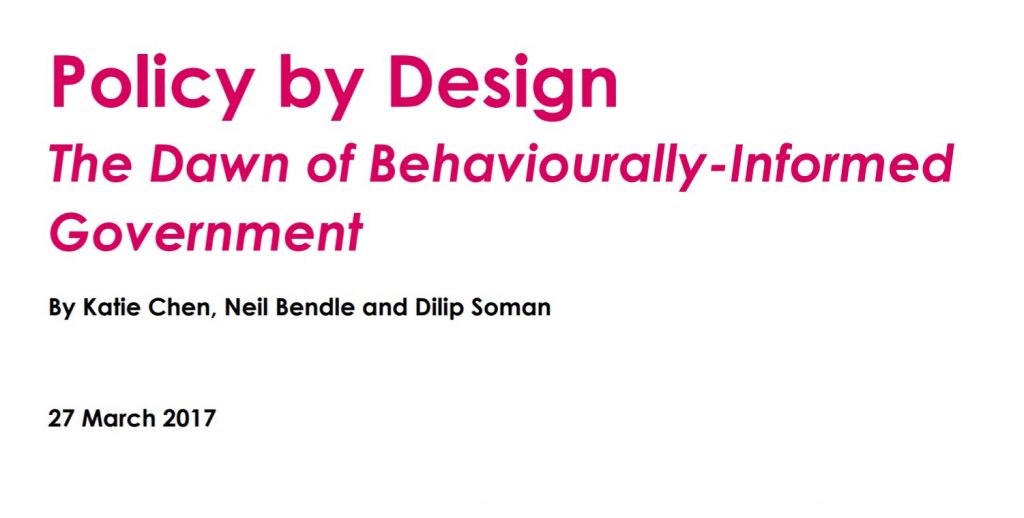Katie Chen (then at Western), Dilip Soman (of Rotman), and myself published a whitepaper. (I wrote this in 2017 and have edited since). This was through BEAR at the University of Toronto. We discussed moves towards improving public policy with better assumptions. Specifically the ideas about human behavior used in models. (More empiricially valid models in academic terms). By which we mean policy that is based upon how people actually behave. A lot of policy seems to have been based on how policy makers think we should behave. (You often get the impression that policy markers are disappointed by their public. Can they find a new public to serve?) What then do we know about improving public policy with better assumptions?
Traditional Approaches
People often behave differently than protagonists in standard economic models. This means that the normal range of techniques to influence behaviour simply aren’t enough.
A traditional approach based upon economic thinking might use 1) restrictions, 2) incentives, 3) or increased information. There is nothing wrong with any of these. In the right circumstances these can be vital. Incentives can work. Sharing information can work. Restrictions (bans) can sometimes work and may often be needed. (Especially where those not making the choice suffer).
Yet the traditional ideas often start from the wrong premise. That people don’t know something. That people need bigger monetary incentives. Finally, that people have to be controlled. These ideas can go wrong. What is more these don’t apply in all situations. For example, a lot of people smoke. This is despite them having information. Smokers generally know it makes them sick. Many even want to stop smoking. There are already high taxes on cigarettes. These provide a strong incentive to stop. There are even bans on smoking in many public places. These don’t stop smokers finding somewhere to light up. Of course, bans could always be made more extreme. Maybe a complete ban might be even more effective. Still total prohibitions don’t have a great track record of success.
Improving Public Policy With Better Assumptions
We suggest a more nuanced view of public policy.
“Effective policy designs should start with the assumption that people will likely forget, ignore, gloss over, or misunderstand critical pieces of information, and will act impulsively with minimal thought. These policy designs should build safeguards in the system against such behaviour.”
Chen, Bendle and Soman, 2017, page 8.
We describe how behavioral ideas influence policy from around the world. The range of countries is getting quite extensive. We share the Owain Service of the Behavioural Insights Team’s excellent map of units around the world. We also note that Canada is becoming quite a hub for such work.

I am positive about what is happening. Behavioural science can, and I believe will, help make public policy more efficient and more effective.
“With better data and improved ability to test, behavioural insights will play an increased role in improving policy and services to ensure a better life for every global citizen.”
Chen, Bendle and Soman, 2017, page 20.
What Does It Mean?
Do you provide services be it in business, government, or a not-for-profit? If so designing the offering to appeal to how people actually think and behave seems like a great idea to me. Let us hope for more of it.
For more on public policy see here.
Read: Katie Chen, Neil Bendle and Dilip Soman (2017) Policy by Design The Dawn of Behaviourally-Informed Government, Behavioural Economics In Action at Rotman, download at http://www.rotman.utoronto.ca/FacultyAndResearch/ResearchCentres/BEAR/Our-Research/White-Papers-and-Reports
